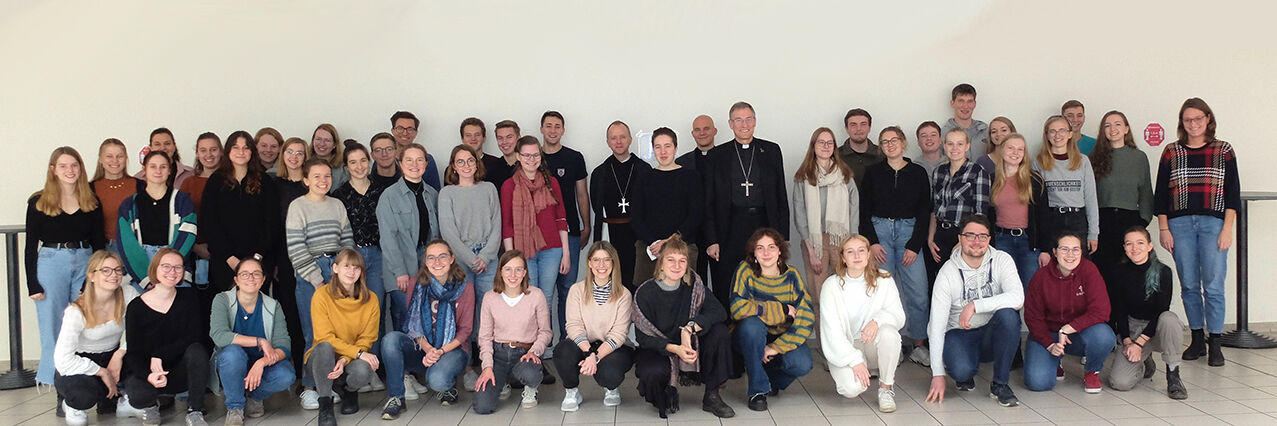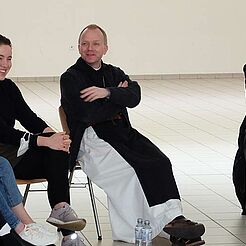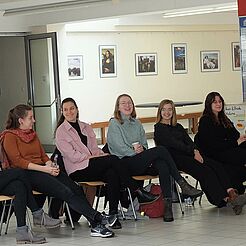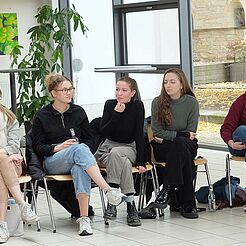- Bishops from Northern and Eastern Europe visit the Diocese of Hildesheim
- Bonifatiuswerk launches nationwide diaspora campaign in Hildesheim
- Former trainees exchange experiences
- Post for a Catholic Information and Media Center
- Support programme extended until March 2023
- Institutional Safeguarding Guidelines put into force
- FIRST INTERNATIONAL CARITAS NETWORK MEETING IN PADERBORN
- Bonifatiuswerk publishes Annual Report
- CATHOLIC PRIESTS IN GERMANY DONATE 5.3 MILLION EUROS
- 12 Millionen Euro für Katholiken in der Diaspora
YOUNG ADULTS HAVE QUESTIONS FOR THE CHURCH
Former trainees exchange experiences

13.11.2021
They have all completed a "Traineeship in the North" with the Bonifatiuswerk over the past five years – and in doing so, they gained valuable experience for their future lives. 43 former trainees met on the occasion of the launch of this year's diaspora campaign from 5 to 7 November in Hildesheim to exchange experiences and to talk with bishops from the North.
Question time with bishops from the North
The highlight of the meeting was a question and answer session with Archbishop Zbigņevs Stankevičs from Riga in Latvia and Bishop Erik Varden from Trondheim in Norway. How can the Church open up to current social developments? How does it deal with gay marriage, for example? This is what many of the young Catholics wanted to know from the bishops present. Another topic was the appreciation of the work of women in the Church. Many young people would like to see a higher proportion of female leaders, as became clear in the discussion.
Asked about the five most important goals for his work, Bishop Varden directed the questions back at the young adults: What do they specifically want from the bishops, what are their issues? Dealing with the coronavirus pandemic was also on the minds of the former trainees. Online meetings could save the parishes over time, but in the long run real human contacts are indispensable, Archbishop Stankevičs made clear. In Latvia, representatives of all major religions and denominations had successfully resisted the ban on religious services during the pandemic.
"Traineeship in the North" – the programme
The "Traineeship in the North" offers young adults aged 18 and over – whether after school, during or after their studies, or even during their working life – the opportunity to complete a work placement in Northern Europe or in the Baltic States in one of the twelve placement centres.
(gio)











